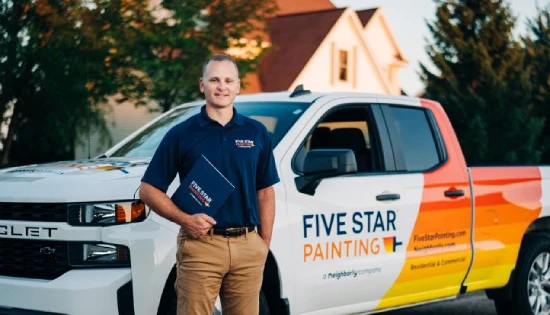Home improvement fraud is a variety of illegal and unethical business practices perpetrated by any kind of contractor who was hired to work on a residential property. Also known as “home repair scams,” “contractor fraud,” and “home renovation fraud,” these practices are fairly common. In their Scam Tracker Risk Report, the Better Business Bureau (BBB) lists home improvement fraud as the fifth riskiest scam in terms of exposure, susceptibility, and monetary loss. Similarly, the Consumer Federation of America (CFA) found that home improvement and construction fraud was the worst type of scam based on consumer complaints.
Home improvement fraud is one of the most damaging kinds of scams. Not only will you lose money to the scammer, but you’ll have to pay once again to either fix their shoddy work or finally get the work done. What’s more, these kinds of scams affect your home, your family, and your ability to live there comfortably, making them particularly nasty — and particularly important to avoid in the first place.
When it comes to avoiding scams, knowledge is power. If you know what to look out for, it’s much easier to avoid falling for a fraudster’s tricks. Here are the most common home improvement scams you need to be aware of:
Contractors Who “Happened to Be In the Neighborhood”
Be wary of any contractor who knocks on your door and proceeds to advertise their services. They may claim to have recently completed work on a nearby home and noticed an issue with your house. They may offer to work for a discount since they’re already in the neighborhood or because they have leftover materials from their other project.
If you accept their offer and pay upfront, it’s unlikely that you’ll see them again. Even if you pay after the fact, they may overcharge you or do very poor work, if they do any work at all. There is no way for you to “win” in this situation.
Avoiding This Scam
There are several ways you can avoid this scam. Not answering the door if you aren’t expecting someone is a simple but highly effective method. If you do answer the door, firmly say that you aren’t interested. Insist that you want to research the company, shop around, or hire a third-party inspector before making any commitments.
Be cautious if you encounter this scam after a natural disaster has hit your area. Many scammers will attempt to take advantage of people who are trying to recover from and rebuild after the disaster. You should also be wary if you’re a senior, live alone, or your home visibly needs repairs or updates.
Contractors Who Refuse to Provide Proof of Licensing
From painters to plumbers, all contractors need to be properly licensed. Alarm bells should immediately go off if you run into a contractor who refuses to show you their credentials, including their license and proof of bonding and insurance. You should also be wary of contractors who can’t show you examples of their previous work.
There is nothing wrong with asking a contractor to see their credentials. As a customer, it’s your responsibility and your right to do your due diligence on a contractor you might hire. True professionals understand this and won’t hesitate to share their credentials; it’s an easy way to gain your trust and secure a job.
If a contractor does provide a license number, verify that it is active and in their name. Some tricksters will provide a fake license number or operate under someone else’s, which is just as questionable as not providing a license number at all.
Avoiding This Scam
To avoid this scam, simply ask the contractor to see their credentials. If they refuse, it’s best to go with another professional. If they provide a license number, verify it with your local or state licensing board. Trust the results of this third-party verification over the claims of a so-called contractor.
Not all states require contractors to have a license, but professionals will still have some kind of business license, portfolio, or another credential to prove their legitimacy.
Contractors Who Ask for Payment Upfront
If a contractor asks for money upfront, it’s a sure sign of a scam. They are just trying to extract money from you. Once you provide it, they’ll move on and try the same scam on someone else.
Though you’ll likely have to put down a deposit, professional contractors will expect full payment once the project is completed. Countless factors can come up while working — such as unexpected delays, weather issues, increased cost of materials, needing to hire more workers — that can influence the overall cost of the project. It’s always worth getting an estimate, but there is no way to know the true cost of a project until all work is done.
It doesn’t matter if you’re working on a small project, like refreshing your cabinets, or a large one, like painting the entire interior and exterior of your home — home improvement projects are a big deal. Even small updates and repairs can be costly. It’s important to protect your funds so they can go to your project, rather than a thief.
Avoiding This Scam
Generally, if a contractor (or anyone, really) asks you for money upfront, you shouldn’t give it to them. There’s a good chance you’ll never see that money again if you do. If the scammer is pushy and insistent, you aren’t obligated to give them any money; don’t hesitate to tell them that they won’t get anything from you or that you’ll be going with another contractor instead.
Contractors Who Offer You Limited Time Deals or Try to Pressure You
Significant discounts are a major red flag when they come from your contractor. While saving money on your project may sound nice, someone offering a discount for home improvement services is usually trying to run a scam. They’re encouraging you to hire them, and once you pay them, they’ll either take the money and run, delay the start of the project, do very poor work, or fail to complete the full scope of the project.
Similarly, anyone who provides a time-sensitive offer or pressures you to accept an offer quickly is, more likely than not, attempting to scam you. By creating a sense of urgency, they hope you won’t see their illegitimacy. They want you to pay them before you realize that you’ve been hoodwinked.
Avoiding This Scam
Remember the golden rule of scams: if something sounds too good to be true, it probably is. If someone is offering an amazing deal, there’s a decent chance it’s a scam or they’re not the most skilled contractor.
This isn’t to say that all contractors who give discounts are automatically scammers; contractors can and do offer legitimate deals to their customers. However, it’s important to pay attention to how and when they advertise that discount.
If they bring it up only to you or well before you’ve discussed estimates, it very well could be a scam. If the contractor advertises that discount publicly, such as on their website or at their office, it’s probably real.
Contractors Who Fail to Provide a Contract
Proceed with caution if a contractor does not want to sign a contract before beginning work on your project. It’s much easier for scammers to pull the wool over your eyes — and avoid being held accountable for it — if you haven’t put anything in writing. Reputable contractors will be happy to sign a contract since it protects them and their business as much as it protects you.
At a minimum, your contract should outline the scope of work, materials needed, the total cost, and the timeline of the project. Be as thorough as possible in the contract; no detail is too small. Further, once you do have a contract, review it thoroughly to make sure everything you discussed is included.
Avoiding This Scam
Avoid working with any contractor who won’t sign a contract. You may have found a great contractor or the right person for the job, but not signing a contract is risky. Even when working with a reputable contractor, things might not go according to plan. Because your home is likely one of your biggest assets, you have to do your best to keep it, and your finances as a whole, safe.
Reporting a Scam
If someone attempts to or successfully scams you, it’s vital to report it to the appropriate authorities. Reporting a scam is key to holding the scammer responsible for their actions and preventing others from falling victim to their tricks. There are several ways you can make a report:
- File a complaint with the Federal Trade Commission;
- Get in touch with your local State Consumer Protection Office;
- Make a report to the Better Business Bureau.
You can also contact any other state or local agencies that could help, including the state contractor licensing board.
Avoiding home improvement scams can be difficult. There are countless ways that people can attempt to fraud you, and scammers are crafty, always coming up with something new. Do your best to stay aware of new scams, as well as old favorites, when you’re preparing for a remodel or repairs. Finally, trust your instincts; if something feels wrong about the situation, you’re probably right.
 Click to call
Click to call






